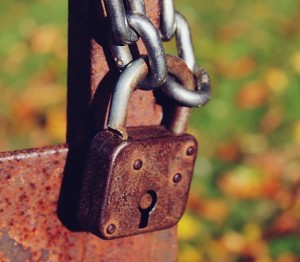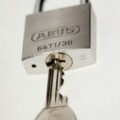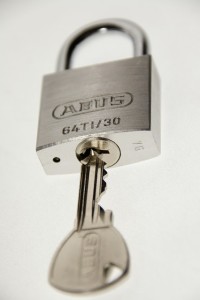Has Your WordPress Website Been Hacked? – Read This Now!

 It's a good question! Has your WordPress website been hacked? You may suspect it, but how do you know? Must you pay for a security assessment? Well, you can, but first, I'd use a free tool to check out your site.
It's a good question! Has your WordPress website been hacked? You may suspect it, but how do you know? Must you pay for a security assessment? Well, you can, but first, I'd use a free tool to check out your site.
That way, if it says your website is compromised, you know then that you absolutely need to take action.
If it says it's clear, it probably is. No guarantees, but it's a good sign.
So what tool should you use?
Recommended Website Scanner
The one I recommend to my clients to use initially is Sucuri's site scanner. It's quick and it's free.
Is it as thorough as a full site audit by a security specialist? No, but you may as well run it first.
Here it is:
To use it, click on the link, then type in the URL (web address) of your website into the box. In a few moments, you'll get back the result.
This will show you whether the scanner has detected any malware on your site. But it will also whether your site is blacklisted by any search engines.
What To Do If It's Clear
If the scanner shows it's clear, then unless you strongly suspect it's infected, you can rest easy.
What To Do If There is Malware
If hackers have infected your site with malware, my first advice is to restore from your last known good backup. Then I'd see about hardening the security around your site. I would recommend:
- Installing the WordFence security plugin with its firewall.
- Keeping your WordPress version, your theme and all your plugins updated to the latest level
- Using hard to guess passwords for your WordPress admin user.
- Changing the username of your admin user from 'admin'.
If you don't have a robust backup process in place, then get one as a matter of urgency. Having a viable set of backups can mean the difference between a little inconvenience and having no website at all. This has happened to people I know - they lost everything.
Summary
If you worry about your website and hacking, run the free Sucuri scanner. If you have any questions after doing this, contact me for a chat: https://www.wptrainingnow.com/blog/contact/
WordPress Security Tips – Avoid The 3 Biggest Problems


Want some usable WordPress security tips? Hacking is on the increase. You only have to watch the news to see that even major corporations are not immune. If they can be hacked so easily, what chance do you have?
Do you know the three biggest security barriers that block so many WordPress website owners? The ones that leave their websites - and business - at risk?
If you're a WordPress website owner who wants usable WordPress security tips and also wants to avoid these barriers to good WordPress security, read on ...
Barrier No. 1: Thinking You Won’t Get Hacked
Perhaps the most pressing problem with security is denial. Believing that that you won’t get hacked – that it just happens to other people. The unfortunate fact is your website probably will get hacked at some stage.
So the first of my WordPress security tips is: the choice is to take preventive action now or pay the price in having your website totally disappear tomorrow. And if you rely on your website for revenue, exposure or credibility, where will that leave you?
Why is it a barrier?
Thinking you won’t get hacked is a barrier because it prevents you from taking the action you need to take.
What is the real problem here?
Let’s be honest here. If you don’t take responsibility for the security of your websites, then regrettably, it will cost you in terms of money, reputation and time. And most probably all three.
How do you get around this problem?
You get around this problem firstly by adjusting your thinking. It probably will happen sooner or later, so it’s best to put steps in place to cope with it without impacting your business.
Then you need to assess the risk and then taking appropriate action. To assess the potential risks you can research the prevalence of hacking online. You can discover the results of your website being hacked. And you can see how often it happens these days. Then you can assess what steps you need to take to prevent these types of action.
How do you deal with this if you’ve already been hacked?
If you've already been hacked, there may be things you can do about it. Your hoster may have a single backup of your site, taken in the last week. If this is uncorrupted and hack-free, then you could be in luck. But don’t rely on it. It is not a replacement for a robust backup strategy.
In the worst case, if you have no backups and neither does your hoster, you may be faced with getting your site recreated from scratch.
Barrier No. 2: Not Putting Basic Protection In Place
Why is this a barrier?
You don’t leave your house door unlocked when you leave your house, do you? Yet so many people have insecure passwords, no firewall and no protection against brute force hacking attacks.
If you leave your site in this state, the sad reality is that you will get hacked, sooner or later.
What is the real problem here?
If you have no real protection, easy to guess passwords and no backups, it’s like leaving your door wide open. It’s inviting hackers in.
How do you get around this problem?
You get around this by at least taking the most fundamental steps toward security. I’ve blogged about these issues before, but in summary:
- Don’t use Admin as your administrator username.
- Have hard to guess passwords (WordPress will generate these for you).
- Keep your WordPress version, themes and plugins up to date.
- Install a security plugin like WordFence.
For more detail on each of these, check out my other articles on security on my blog: http://wptrainingnow.com/blog
How do you cope with the problem if you've already been blocked by it?
If you've already been hacked, then this how you get started again. First, take a deep breath and don’t do anything precipitative.
You first need to establish the extent of the hack. You can use the free scanner from Sucuri: http://sucuri.net/scanner . This will let you know if there is any malware on your site. If there is malware, at least you know in which direction you need to go. You will know that you have to get it cleaned up. But you need to be cautious - just because there is no malware does not mean you have not been hacked!
Secondly get in touch with your hoster, as if your site has been defaced, you will need them to take it offline. Your hoster will then either be able to clean up your site, or recommend specialists to do this for you. A word of warning - this may well be chargeable. Two reputable specialist cleanup organisations are Sucuri and SiteLock.
Barrier No. 3: Not Having a Robust Enough Backup Strategy
Why is it a barrier?
This is a barrier because no matter what preventative measures you have, hackers may still be able to get through your protection.
What is the problem here?
If you don’t have a robust backup strategy, if you get hacked, you can lose everything. It's the reason cars have a spare tyre in the boot. You will eventually get a puncture and if you have no spare, your journey is over. If you do have a spare, it's just a case of swapping the tyre out.
It's exactly the same with backups. You just use the backup to overwrite your hacked site, leaving it clean and ready to use.
How do you get around this?
You need a backup strategy that backs up your site on a regular basis, and that holds those backups away from your site. That way, if your site is totally wiped – and this does happen – you can restore from the last viable backup that your backup system has available.
The alternative – storing your backups on your site is convenient until you lose your entire site!
How do you proceed if you have no backups?
Sadly in this case you may well be looking at rebuilding your site from scratch. And this will undoubtedly involve time and money.
Of course, you may not have to start from nothing. You may still have your hosting, your autoresponder account and some of the content of your site held locally on your PC. So it may not be quite as painful as recreating it absolutely from scratch.
Summary: WordPress Security Tips
Now you know the top three WordPress security tips that WordPress website owners can benefit from. You know what the biggest problems are, and you know how to build momentum again if you've already been stuck down by one of these problems.
If you’ve been affected – or just want to make sure you’re not affected, I'd like to invite you to cut to the front of the line to find the protection you need for your website. I’ll give you a free security consultation, identify your potential liabilities and recommend changes.
All complementary – just contact me here: https://www.wptrainingnow.com/blog/contact/
WordPress Security Scan – 3 Fundamental WordPress Security Tips


Do you have a WordPress website and want to know what the major security vulnerabilities are? Do you know the three minimum viable steps towards WordPress security that every WordPress website owner should know? Ever had a WordPress security scan?
This article is about WordPress security and getting the maximum protection for the minimum outlay.
You're a WordPress website owner and you’re probably concerned about hacking – and who wouldn’t be? In this article I share vital tips you must know to be properly protected against hackers. To ensure your website is not hacked and you lose everything, you need to read this article immediately to take your WordPress security to the next level.
WordPress Security Tip No. 1: Get the Free WordFence Plugin
Why is this important?
You need something to stop brute force attacks – the repetitive trying of different passwords over and over again. This is a very common tactic amongst hackers. The great thing is that you can protect against this sort of attack for free.
What is the tip?
The tip is to get hold of the WordFence plugin. WordFence does a number of things for you to improve your security, and one of them is to act against brute force attacks. It limits hackers guessing your password by locking them out after a number of failed attempts.
It also detects changes to your WordPress code, plugins or theme – which can be a sign of a malware attack. It monitors access attempts and the paid version even allows you to block specific countries and IP addresses which show signs of repeated hacking attempts.
How to implement WordFence
To implement WordFence, just go to the WordPress plugins site, search for the free WordFence plugin, download it and install it. You can even do this from within your WordPress site. Just go to the plugins tab, click ‘add new’ and search for Wordfence. When it shows up in the search results, click to install it.
This tip is priceless because …
For the outlay of precisely zero Dollars, Pounds or Euros you can protect your website against hackers. It’s not the whole solution, but as a zero-cost option, it’s one you should have in place.
WordPress Security Tip No. 2: Have Hard to Guess Usernames and Passwords
What is the tip?
This tip is simply to have hard to guess usernames and passwords for your WordPress backend. Yes, I know, am I really spending time sharing this with you? Yes I am, because it’s vital.
Why is it important?
This tip is important as it’s a security tip that won’t cost you anything, yet will pay dividends. And it’s the first thing a hacker may try to gain access to your site, as it’s the least amount of effort for them.
It’s frightening how many sites have an admin username of ‘admin’ and a password of ‘password’ or ‘test1234’ or even ‘12345678’. If you have a username and password this easy to guess you may as well have no security at all.
You may not see this as a problem, but as soon as you install WordFence, you’ll see just how many failed attempts at guess your password you get every day.
So how do you implement this tip to get better WordPress security?
WordPress will generate a very hard to guess password for you – you just need to ask it to! And if you have an admin user called ‘admin’ set up another admin user with a harder to guess username then delete the original one called admin.
WordPress Security Tip No. 3: Get Your Site a Robust Backup Plan
Why is this important?
No matter how good your security, a determined and skilled hacker can still get access to your site. Therefore you need a robust backup strategy so you can quickly and easily restore your site.
The alternative, once your site has been wiped out, is to rebuild your site from scratch, with all the cost, inconvenience and delays associated with that.
And this does happen, regrettably with increasing frequency.
What is the tip?
So whatever backup system you choose to use, you must have a reliable backup system in place. There are a number of systems around, but there will be one that suits your budget and needs.
How do they implement this tip to get better WordPress backup results?
For many people running WordPress, I now recommend VaultPress. It’s a backup system run by Automattic, the people who write WordPress itself. It’s robust, trusted and affordable.
Just seach for VaultPress, select the option that’s right for you, and once VaultPress takes its first backup, you’ll be protected.
Vital Bonus Tip - Get a WordPress Security Scan!
Now that you've got the three important tips for WordPress backup success down, I'd like to invite you to get even MORE advanced help with my bonus tip.
What is my bonus tip?
Many hackers gain access to your site through an out of date copy of WordPress. Older copies of WordPress have been found to contain vulnerabilities that hackers exploit. When WordPress identifies these vulnerabilities, a new version is issued. And, as with all WordPress code, this update is free.
If however your WordPress is not updated to the latest version, you can be leaving an easy access door available for any hacker. Many of the recent hacks are due to out of date WordPress code.
What’s true of WordPress versions is also true of your theme. Your theme, if not at the latest level, can be a source of attacks.
And what’s true of WordPress and your theme is even more true of outdated plugins.
Keeping Everything Updated
The trouble is, keeping WordPress, your theme and all your plugins up to date is a considerable drain on your time. If you miss an update, your site can be vulnerable. And the longer you leave it, the more threat it poses.
Is there an answer?
I response to this problem, I offer a cost-effective service to ensure your WordPress website is up to date. I carry out a WordPress security scan of your website. That’s WordPress itself, your theme and all your plugins.
And I don't just do this once, I do it regularly. I actively monitor your site and take action to update any component that is out of date and hence a vulnerability.
Next Steps - WordPress Security Scan
If you're a WordPress website owner who wants to ensure you always have the latest version of WordPress, each plugin and theme then get my WP Maintenance Service - NOW!
Click Here For More information: http://wptrainingnow.com/blog/wp-maintenance
WordPress Security Check – Security Tips For All Website Owners

 Want a quick WordPress security check? Do you want to know the three vital WordPress security tips every WordPress website owner should know to have your site secured against hackers? This article is about taking the minimum viable steps to WordPress security. This means the minimum outlay with the maximum protection.
Want a quick WordPress security check? Do you want to know the three vital WordPress security tips every WordPress website owner should know to have your site secured against hackers? This article is about taking the minimum viable steps to WordPress security. This means the minimum outlay with the maximum protection.
You're a WordPress website owner and you’re probably concerned about hacking – and who wouldn’t be? In this article I share three vital tips you must know to be properly protected against hackers. To ensure your website is not hacked and you lose everything, you need to read this article immediately to take your WordPress security to the next level.
WordPress Security Tip No. 1: Get The Free WordFence Plugin
Why Is This Important?
You need something to stop brute force attacks – the repetitive trying of different passwords over and over again. This is a common tactic among hackers. The great thing is that you can protect against this sort of attack - and for free!
What Is The Tip?
The tip is to get hold of the WordFence plugin. WordFence does a number of things for you to improve your security, and one of them is to act against brute force attacks. In simple terms it limits hackers guessing your password by locking them out after a number of failed attempts.
It also detects changes to your WordPress code, plugins or theme – which can be a sign of a malware attack. It monitors access attempts and the paid version even allows you to block specific countries and IP addresses which show signs of repeated hacking attempts.
How To Implement WordFence
To implement WordFence, just go to the WordPress plugins site, search for the free WordFence plugin, download it and install it.
You can even do this from within your WordPress site. Just sign in to your WordPress Dashboard, go to the Plugins tab, click ‘Add New’ and search for Wordfence. When it shows up in the search results, click to install it.
This Tip Is Priceless Because …
For the outlay of precisely zero Dollars, Pounds or Euros you can protect your website against hackers. It’s not the whole solution, but as a zero-cost option, it’s one you should have in place.
WordPress Security Tip No. 2: Have Hard To Guess Usernames And Passwords
What Is The Tip?
This tip is simply to have hard to guess usernames and passwords for your WordPress backend. Yes, I know, am I really spending time sharing this with you? Yes I am, because it’s vital.
Why Is It Important?
This tip is important as it’s a security tip that won’t cost you anything, yet will pay dividends. And it’s the first thing a hacker may try to gain access to your site, as it’s the least amount of effort for them.
I read a report on computer security last week. It’s frightening how many sites have an admin username of ‘admin’ and a password of ‘password’ or ‘test1234’ or even ‘12345678’. In fact the most common username and password combination is 'username' and 'password'!
If you have a username and password this easy to guess you may as well have no security at all.
How Do You Implement This Tip To Get Better WordPress Security?
WordPress will generate a very hard to guess password for you – you just need to ask it to! Sign into your Dashboard and go to the Users tab. Click on the user you want to change. About half way down the screen is an option to change your password. Allow WordPress to recommend one for you. This will be neigh on impossible to guess.
And if you have an admin user called ‘admin’ set up another admin user with a harder to guess username then delete the original one called admin.
WordPress Security Tip No. 3: Get Your Site a Robust Backup Plan
Why Is This Important?
No matter how good your security, a determined and skilled hacker can still get access to your site. Therefore you need a robust backup strategy so you can quickly and easily restore your site.
The alternative, once your site has been wiped out, is to rebuild your site from scratch, with all the cost, inconvenience and delays associated with that.
And this does happen, regrettably with increasing frequency.
What Is The Tip?
So whatever site you have, you must have a backup strategy. And whatever strategy you choose to use, you must have a reliable backup system in place. There are a number of systems around, but there will be one that suits your budget and needs.
How Do You Implement This Tip?
For many people running WordPress, I now recommend VaultPress. It’s a backup system run by Automattic, the people who write WordPress itself. It’s robust, trusted and affordable.
Just open a web browser and search for VaultPress, select the option that’s right for you, and once VaultPress takes its first backup, you’ll be protected.
WordPress Security Check - Bonus Tip
Now that you've got the three important tips for WordPress security success down, I'd like to invite you to get even MORE advanced help with my bonus tip.
What Is My Bonus Tip?
Many hackers gain access to your site through an out of date copy of WordPress. Older copies of WordPress have been found to contain vulnerabilities that hackers exploit. As soon as WordPress identifies these vulnerabilities, they issue a new version. And, as with all WordPress code, this update is free.
If, however, you do not update WordPress to the latest version, you can be leaving an easy access door available for any hacker.
What’s true of WordPress versions is also true of your theme. Your theme, if not at the latest level, can be a source of attacks. And what’s true of WordPress and your theme is even more true of outdated plugins. Plugins are great, and add functionality to your WordPress site.
So you must keep your WordPress version, theme and all plugins updated to the latest level.
Keeping Everything Updated
The trouble is, keeping WordPress, your theme and all your plugins up to date can be a considerable drain on your time. If you miss just one update, your site can be vulnerable. And the longer you leave it, the more threat it poses.
Is There An Answer?
In response to this problem, I offer a cost-effective service to ensure your WordPress website is up to date. I will ensure your site stays up to date. That’s WordPress itself, your theme and all your plugins. I monitor your site and take action to update any component that is out of date and hence a vulnerability.
WordPress Security Check - Next Steps
If you're a WordPress website owner who wants to ensure you always have the latest version of WordPress, each plugin and theme then get my WordPress maintenance service - NOW! It's just £5 per month for each site.
Want a WordPress Security Check?
Click Here To Get Covered By My WordPress Maintenance Service:
http://alunloves.it/wpmaintenance
WordPress Security Practices – Thwarting The Hackers
Here's a short video on WordPress security practices. It covers what you can do to improve the security of your WordPress website. We all know that hacking is on the increase and you risk losing your entire site in a hack.
But is there really anything you can do to prevent a hacking attack? Watch my short video and decide for yourself!
WordPress Security Practices
Here is a summary of the actions YOU can take today to improve the security of your WordPress site.
- Keep WordPress up to date
- Keep your plugins and theme updated
- Avoid brute force attacks
Once you've watched the video, it may be obvious what your next steps are. In that case, just get those things implemented today, and harden the security of your site.
On the other hand, it may be that you need a little advice on the best way to go for you and your site. As WordPress security can be a complex issue, I'm happy to help you out.
If you'd like a no-obligation chat about the security of your site and how it can be improved, contact me, Alun Richards, here: http://wptrainingnow.com/blog/contact






